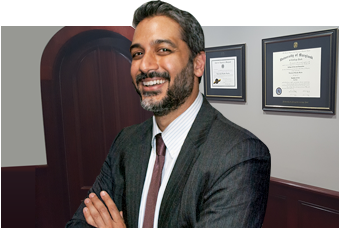Had a Few Too Many Drinks at a Holiday Party? What to Know Before Getting Behind the Wheel

Maybe you only had one drink, but it still may be enough that you won’t pass a breath test. First, don’t panic. It’s likely that the officer has a reasonable cause to pull you over, even if they don’t know that you’ve been drinking. You could have shown signs of impairment, such as swerving, or it could have been a traffic violation or even a broken taillight. Whatever the reason, here are the steps you need to take to protect yourself and your rights if you’ve been pulled over when driving after drinking.
- Pull over properly – Slow down and pull off the road as quickly as it’s safe to do so. Be sure to use your turn signal to let the police officer know your intent.
- Stay in the car – Turn off your car and if it is dark outside, turn on the interior light in your car and keep your hands on the steering wheel. Stay in the car unless you are ordered by the police officer to get out. Remember, the police officer likely knows nothing about you and none of these actions are likely to raise any concerns for the officer.
- Don’t act suspicious or guilty – Avoid any actions that might make the police officer believe that you are trying to hide, dispose, or destroy anything. For example, don’t lean forward or the officer may think you have hidden something underneath your seat and may ask you to exit your vehicle so they can search underneath your seat.
- Cooperate with the officer – Listen to everything the officer is saying and follow their instructions. The officer is in charge and you cannot leave until the officer tells you it’s okay.
- You are being observed – Remember that you are being observed by not only the police officer, but likely equipment inside their vehicle as well. Many police cars have equipment to record traffic stops, so if you act strangely, it will all be caught on camera.
- Choose your words wisely – Don’t argue with the officer, but don’t volunteer any more information than necessary. Simply answer any of the officer’s questions and tell your passengers to follow the same rules. Save your arguments for court. Do not admit to drinking or tell the officer where you came from. Be polite, but decline to make a statement. Remember, anything you say can be used against you in court
- Blood alcohol testing – Think carefully before you refuse to take a blood alcohol content (BAC) test. Every state, including Maryland, has implied consent laws, which means that by having a driver’s license, you consented to BAC testing. If you refuse the test, the MVA will suspend your license for 270 days unless you elect to enter into the Ignition Interlock Program for a year. If you have Commercial Driver’s License a refusal will cause you to be disqualified for one year. However, by refusing the test you are denying valuable evidence to the prosecution. If the officer threatens you with jail for refusing to take the test, tell your DUI lawyer as this constitutes coercion.
- Don’t volunteer – You are under no obligation to provide evidence against you to the police. If you have been drinking, do not volunteer any statements, do not admit to drinking or to coming from a bar. You can and should refuse the field sobriety tests. The only way to pass the field sobriety tests is not to take them. Under all circumstances be polite to the officer, but do not help them make the case against you.
We Can Help You Today
Driving under the influence charges are a complex area of criminal law. There is no secret to getting the cases dismissed, and Maryland lawmakers have recently increased the penalties for a DUI conviction. This makes it especially important to have an attorney on your side the knows the laws and can successfully challenge your DUI charges and possibly even get the case thrown out of court. At the Law Office of Hammad S. Matin, P.A. in Maryland, we can help craft the best DUI defense strategy available for your specific case.

